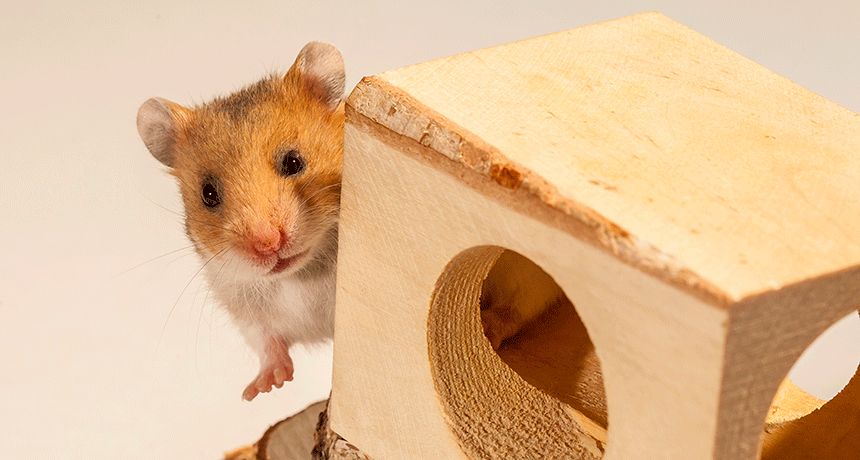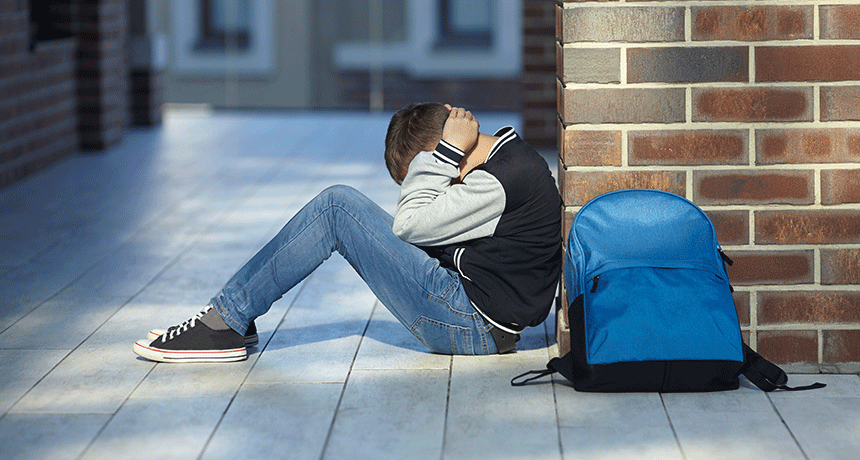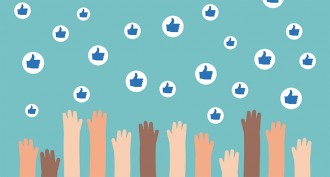Psychology
-
 Psychology
PsychologyYour window to learn new languages may still be open
Results from an online grammar quiz suggest that people who start learning a second language at age 10 or 12 can still learn it well.
By Bruce Bower -
 Psychology
PsychologyTeen fights fake news, one newsfeed at a time
How do we get rid of misleading news? One teen found that warning signs might help, but the most effective option, to him, looks too much like censorship.
-
 Psychology
Psychology2016 election stressed out some teens and young adults
Some teens and young adults felt stress, anxiety and fear during the 2016 election — no matter what political candidates they tended to prefer.
-
 Psychology
PsychologyAnalyze This: The power in being understanding of your flaws
Expecting nothing but perfection from yourself can lead to depression. Forgiving yourself after mistakes can lower your risk of feeling bad, a new study finds.
-
 Psychology
PsychologyBullying alters ‘bugs’ in the gut, hamster data show
A new study found that the microbes in a hamster’s gut changed in response to social stress.
-
 Health & Medicine
Health & MedicineFinding and helping teens for whom sadness is a disease
Adolescents should soon be screened for depression at their yearly check-up with their doctor.
-
 Health & Medicine
Health & MedicineAnalyze This: Does moderate screen time boost teen happiness?
Computers, smartphones and TVs are everywhere. And scientists are trying to discover whether that’s a good thing for our well-being.
-
 Health & Medicine
Health & MedicineThe power of ‘like’
A single “like” on a social-media post can make it much more popular, which can influence how teens behave.
-
 Health & Medicine
Health & MedicineSocial media: What’s not to like?
Social media can help teens connect with friends and family. Sometimes, however, it may leave them feeling depressed or isolated.
-
 Psychology
PsychologyWarnings may help flag fake news, but they also backfire
Warning that a news story may be false can help people avoid being duped by hoaxes — but not as much as you might think, according to a new study.
-
 Psychology
PsychologyThink you’re not biased? Think again
Everyone holds some unconscious bias about certain social groups, even when they don’t mean to. Scientists are learning how people can fight such implicit biases.
-
 Psychology
PsychologySearching for better, cooler friends might backfire
When people try to find the best possible people to hang out with, they become less happy in life, a new study finds.